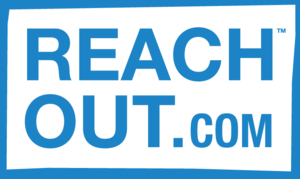I’ve spent a long time wondering how the two completely different elements of my degree, history and psychology, would end up ever relating to one another. Both have seemed to be fantastic in their own little worlds and the closest I had ever been to bringing the two together was studying Sigmund Freud’s work in the 20th century (which isn’t so great the 5th time around). Although I had come to accept that, this project has finally brought together these two topics I love in a way that perfectly highlights both.

I started volunteering at ReachOut in February this year and have continued to be involved in the community there since then. The organisation is a not-for-profit mental health service focused entirely online, and has been going strong for close to 20 years now. They feature articles ranging from how to relax, and HSC advice to serious mental health topics, with plenty support and advice for everyone. Although they’re a relatively young organisation based online, the sense of community I feel every time I visit makes me feel so connected and at home while I’m there. Their forums and teams bring ReachOut to life, with fantastic community events and support across the country. For the months I’ve been a volunteer, I’ve specifically been writing articles, researching, creating databases and I’ve even had my photo published in a visual article. Even with this variety of different projects I’d been involved in, I didn’t feel as though any would let me use what I’d learned in the past years of history at university.

When I visited the ReachOut offices last week, I spoke to the head of the research team, Hilary. We both chatted about what kind of work would be relevant and useful to them while also allowing me to finally follow this psychological-historical dream. After some discussion about what she was looking for, we decided that a potential research grant would be a fantastic way to go about it. Mental health services have been difficult to reach for rural communities, which ReachOut has been focusing greatly on. By using the resources present, oral histories and stories from interviews in other articles and pulling data and studies from how mental health has changed through the years, I think I can make something that would benefit ReachOut greatly. After settling on this idea, I’ve been able to search through books, recordings, photos and articles for stories that I would otherwise never have been able to look at. I’ve even had a look at some stats and graphs, factual information that I think will really ground this work.
Volunteering at ReachOut has been a wonderful experience in the past, and finally being able to give back in a way that lets me use all the skills I’ve learned at university feels fantastic. This is an organisation I feel privileged to be able to support, and I’m very much looking forward to see how this project ends up going and what I’ll learn as I go!
